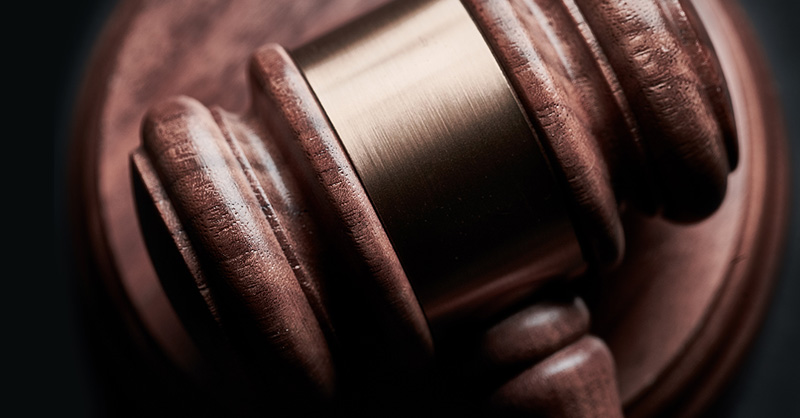Petroecuador restitution loss a win for US prosecutors
20 April 2021 00:00

Petroecuador's recent loss in a bid to secure payment from a bribe payer reinforces an emerging legal bulwark against the use of restitution as a corporate tool in US criminal corruption cases, particularly in cases where the company itself was corrupt.
A US judge last week said she wouldn't order Ramiro Andres Luque Flores, a businessman who paid bribes to Petroecuador officials in connection with remediation work for the company, to pay restitution. Under US federal criminal law, courts can order restitution paid to victims of crime, and Petroecuador had sought nearly $22 million from Luque.
US District Judge Carol Bagley Amon, who rejected the request, didn't give reasons for her decision, but she said a written order would follow. She had admitted at an earlier hearing that she thought it was unlikely Petroecuador, Ecuador's state oil company, would get anything.
"Quite frankly for [Petroecuador], the odds you see a penny from this are slim to none," Amon said.
— Uneven row —
The row didn't pit Petroecuador solely against Luque. Prosecutors also argued that Luque, who cooperated with their probe, shouldn't be forced to pay anything. Petroecuador, they said, was so riddled with corruption that it effectively became part of the crime.
That position by prosecutors has a certain inconsistency at the surface. Petroecuador, in this reading, was in theory victimized by Luque but also an agent in its own victimization. But the decision to deny Petroecuador restitution joins other US court rulings that have been implicitly skeptical of corrupt businesses turning to US criminal proceedings for a quick buck.
Petroecuador itself lost a similar bid for restitution in a related case in Florida. A federal judge found that the corruption at Petroecuador had derailed its bid to be considered a victim.
"The level of pervasive, constant and consistent illegal conduct among...Petroecuador's principals was sufficient to preclude" the company from being recognized as a victim, US Magistrate Judge Alicia Otazo-Reyes wrote in a 2019 opinion.
— Practical considerations —
For prosecutors, these decisions have been welcome ones that help with more practical aspects of their work. In previous proceedings, the US Justice Department has expressed concerns about restitution effectively destabilizing the difficult task of negotiating resolutions under the Foreign Corrupt Practices Act.
The issue was particularly relevant in a New York case involving the hedge fund then called Och-Ziff Capital Management, which now goes by the name Sculptor Capital Management.
A judge found in 2019 that Och-Ziff, which had been involved in bribery in the Democratic Republic of Congo, could be ordered to pay restitution to investors who claimed they were cheated out of mining rights as a result of the corruption.
US District Judge Nicholas Garaufis, who made the groundbreaking finding, effectively said he didn't really care that his decision could upend the carefully negotiated settlement that Och-Ziff had reached with US enforcers.
"That's somebody else's problem," he said.
"Let's not argue what people are going to teach in law school about this kind of case," Garaufis said." Let's worry about the victims in my case. The Justice Department can wring its hands all it wants."
The investors and Och-Ziff, by then called Sculptor, finally reached a deal that was approved in November.
Claims for restitution from Petroecuador, and similar restitution bids made by Venezuela state energy company PdVSA in comparable cases, are arguably thornier than the one Sculptor faced.
Recognizing those companies' putative claims to victimhood — and their consequent right to restitution — could seriously jeopardize prosecutors' ability to pursue criminal prosecutions of bribe payers in the first place.
Luque, for example, cooperated in the US probe, agreeing even to wear a wire. He maintains that he was effectively extorted by Petroecuador officials, who threatened to withhold payment on already existing contracts unless he paid bribes.
Petroecuador unilaterally terminated those contracts without payment. Had the court ordered restitution, Luque would have had to effectively pony up money to the corrupt company again. That type of scenario, if commonplace, could easily discourage similarly situated defendants from cooperating with US probes to start with.
— Holding the line —
So far, though, courts in Florida and New York, two key jurisdictions for anticorruption enforcement, have largely rejected efforts by "corrupt" companies to horn in on — and in prosecutors' view, arguably disrupt — enforcement proceedings with restitution demands.
Until Amon issues a written decision on her reasoning, Petroecuador can't appeal. A loss for the company at that level would make it clear that prosecutors, not corrupt companies, are running the show in anticorruption actions.
Related Articles
No results found
